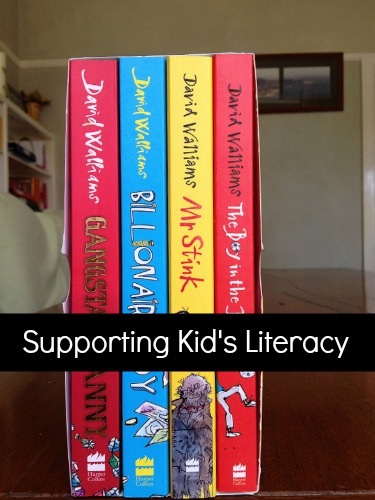This post is the final in my literacy series which has been running over the last few weeks. The other posts in the series were:
- What Is Phonics?
- Early Literacy For Children With Additional Needs
- Is your child being taught to spell well?
- Decodable Books
I was pleased to have a number of experts contribute to the series, but for today’s post I wanted to share what I do at home with our kids to support their literacy. This is the stuff beyond reading to them daily, talking to them, pointing out letters, signs etc. I am not writing this to say that this is what everyone should do nor that is even best practice. It is the reality of how I try my best to support five kids at differing levels with their literacy. To make it a little easier for you to follow I have broken it into stages.
Preschooler
My support of literacy for this age, is based upon games and an introduction to phonics. Our eldest child attended a Montessori kindergarten and I was lucky to learn a great deal about early literacy from his teachers. The first thing I learnt was not to teach preschoolers the name of the letters of the alphabet, but the sound.
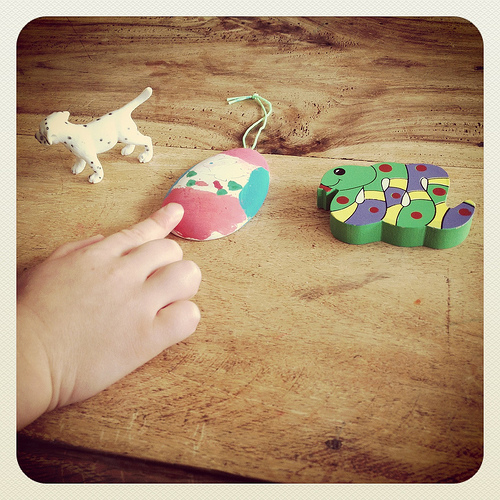
The first game I have played with all our preschoolers has been the “I Spy” game. You can see full details on how we play it here, but in short you choose a small number of objects and once the preschooler can name all the items correctly you can start the game by saying “I spy with my little eye, something beginning with D”. “D” being the sound of the letter not the name.
I also very happily use technology to help support the preschooler. Two of my favourites resources are:
Alphablocks – Online Game
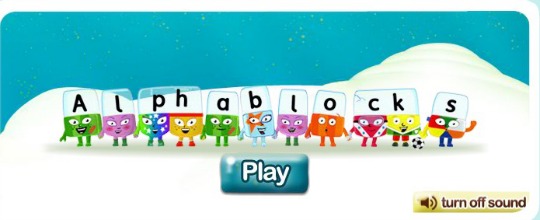
Alphablocks is a fun game which has videos to watch, games to play all of which are phonics based.
It is aimed at three-to six-year-olds and its simple purpose is to entertain and show that wordplay can be a lot of fun. It is based on best-practice phonics teaching, helping young children to develop confidence and encouraging engagement with reading and making words.
I will let the four year old have 10 – 15 minute sessions on this when I can sit with him. While he can easily operate the mouse, there are many options and distractions, which I guide him through.
abc Pocket Phonics
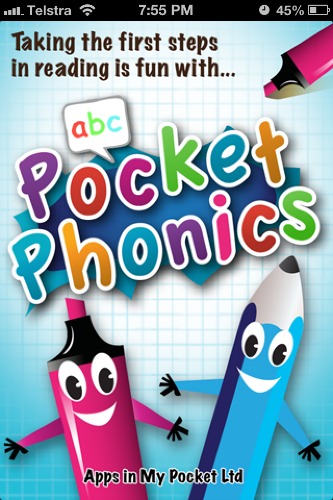
Possibly one of my favourite all time kids educational apps. This link will take you to the lite version which is free, but only has limited letters. It is great to be able to try it out, but we have the $2.99 full version and I highly recommend it.
Again our preschooler has 10 – 15 minute sessions on the iPad, but the way this app works, it will only let him move up once he has mastered sets of letters first. I will let him play this game when I am working with the older kids on their homework. He will often then have 10 minutes of free play on other apps of his choice.
Primary School
I have two key resources I use to work on literacy with the primary school kids.
Simplex Spelling Phonics 2 Syllables – Spell To Read
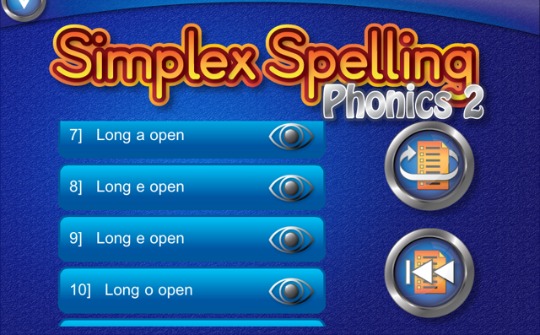
The first is an app, Simplex Spelling Phonics, and it is one of the more expensive apps I have bought at $5.49, but I think it is worth every cent. You can have user accounts for each child, so they can work at their own level. It is recommended for kids aged 6+. And we have just purchased the Simplex Spelling Phonics – Advanced Phonograms which is also $5.49 and recommended for kids 9+.
Toe by Toe: Highly Structured Multi-Sensory Reading Manual for Teachers and Parents by Keda Cowling
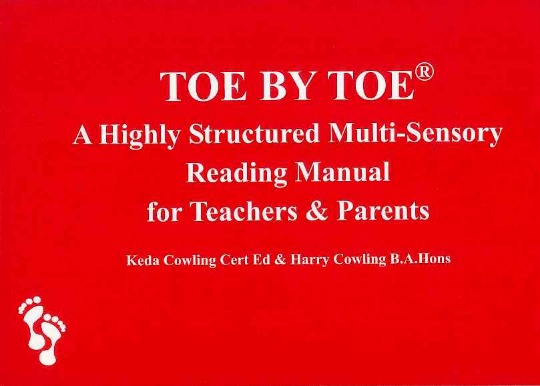
Toe by Toe (aff) is a very specific approach to helping kids learn to read using syllable division and phonics. You can see example pages here.
You don’t need to be an educator to use this book as each page has instructions for you, but it does require commitment and discipline from you, just as much as the child, to be fully effective.
My goal is to work with the primary school kids for about 10 – 20 minutes a day each Mon – Fri, but this doesn’t always happen as extra curricular activities get in the way. The app obviously doesn’t need my input like the book, but I need to be aware of what they are doing on the app and any issues they may be having.
Secondary school
It is a very different ball game at this end. My support is less frequent but still needed. A tip from a friend was to read the set texts he needs to read for school, so I can engage in literary discussions with him about the books. This has been very helpful. The discussions don’t even happen necessarily around homework requirements, but more often just general discussions around the home.
I still make sure he has access to a wide variety of texts and engage in conversations with him about those texts even if I dislike the books. In our conversations I am aiming to increase ability to critically analyse what he is reading. He does love to read and will read widely – sometimes very simple books and other times incredibly complex works. Both can provide excellent opportunities assess his comprehension and understanding.
Educating myself
And I read as much as I can about literacy and kids. I am always on the look out for blog posts on literacy, new research and events I can attend to learn more myself. Highlights I have come across are:
- Teaching Kids to Read by Fay Tran, is a great book for parents who are trying to get a handle on where to start with kids learning to read.
- Literacy, families and learning blog from Trevor Cairney.
- And of course Alison’s blog Spelfabet is an amazing resource for both free and low cost tools to help your kids with literacy.
Each child is different though and I tailor what work I do with them based not only on their ability, but also on their personality and temperament.
Would love to hear how you support kids literacy and any tools and resources you use.

